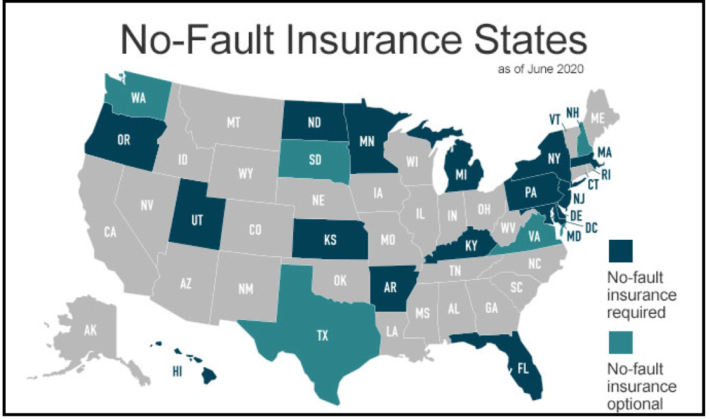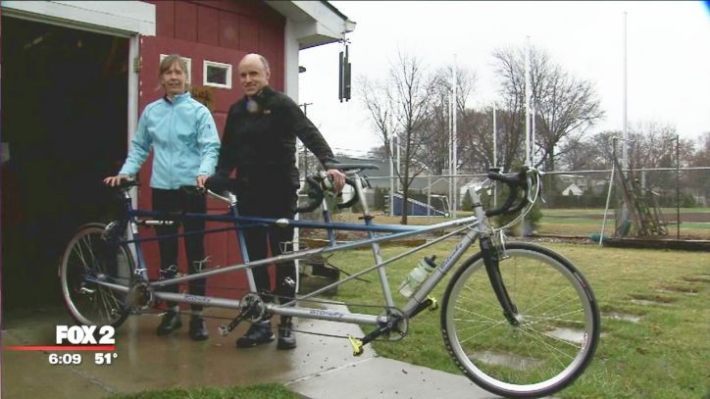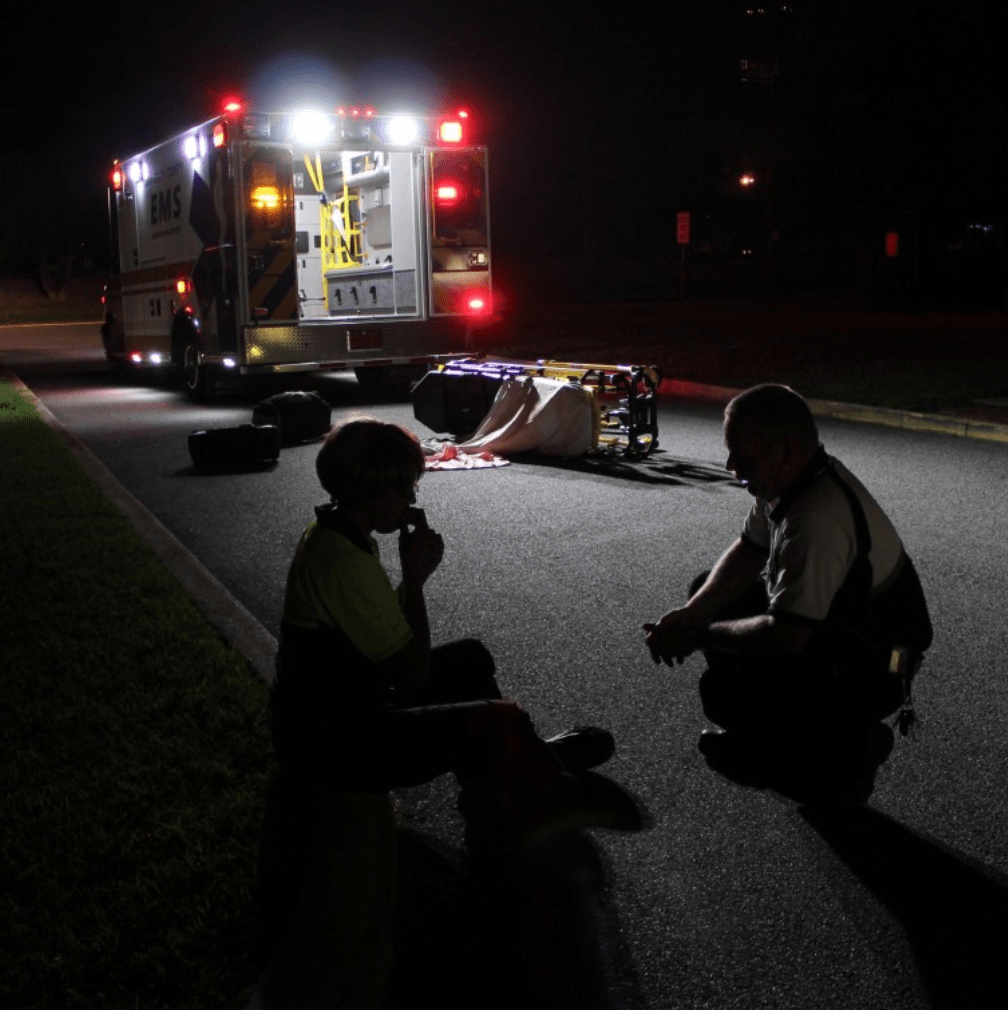A new state law is sending non-drivers in Michigan scrambling to buy auto insurance for cars they don't own — and offering an urgent reminder of how deeply our legal systems disenfranchise those who get around by foot, bike and wheelchair.
Until recently, Michigan had long been known for having one of the best policies in the country for protecting vulnerable road users from financial disaster after car crashes, thanks to the state's uniquely generous "no fault" law. "No-fault" laws, which are in place in more than a dozen states, require insurers to pay the medical costs and damages of their own policy-holders following a collision, rather than requiring the insurance company of the party responsible for the crash to shoulder the costs for both parties — and if a driver strikes a non-driver who has no car insurance policy of her own, the driver's insurance company usually has to pay for the victim's medical bills, lost wages, and other expenses related to the crash.
Michigan, in contrast to other no-fault states, didn't even cap the total amount of medical bills that would be covered under drivers' policies — a crucial protection for road users who sustain the most expensive and life-altering injuries. But as of of July 1, Michigan drivers are now allowed to select far cheaper insurance policies that cap the amount their insurance companies will pay towards their victims' costs, with some policies offering as little as $250,000 in protection, or $50,000 for drivers who qualify for Medicaid.
Experts note that the costs of the worst car crashes regularly exceed those caps — and families are left devastated.
nuances be damned. tell me again that we don't have a car-centric culture. I dare you. https://t.co/SWNCNyEepi
— Zabe B (@zabebent) October 2, 2020
"Eventually, a pedestrian or cyclist is going to get hit by a car [driver], and their expenses are going to be millions of dollars. It happens all the time," said Bryan Waldman, a Lansing-based personal injury attorney and cyclist. "As a result of this law, those victims will likely go bankrupt, they’ll become Medicaid recipients, and they'll have a very difficult path to navigate. It’s just a shame that we treat people that way."
The only bigger shame, of course, is that most states' insurance laws treat non-drivers that way — and often, it's even worse.
'Our laws are structured to almost force people to have a car'
Even with its new law on the books, Michigan's insurance laws still offer a better deal to non-drivers than most states in the nation. In 38 states, it's either illegal or optional for insurance companies to offer drivers personal injury protection — and in those that do require the coverage, drivers are often allowed to buy in at shockingly low amounts. In Maryland, drivers can get by with as little as $2,500 in personal injury coverage; New York drivers are actually limited to providing no more than $50,000 to their victims (or themselves) through insurance payouts.

A walker who gets injured in a crash, of course, may have the option of suing the driver who struck her, depending on her state's unique laws. But the cost of hiring a lawyer can be expensive – and unless a walker has the "good" fortune to be struck by a driver who happens to be wealthy, it's unlikely that she'll recoup all of her costs after a serious wreck. Moreover, because roughly 50 percent of pedestrians are deemed at fault for their own collisions — even when poor road design features like insufficient crosswalks play a role in a walkers' decision to commit dubious traffic crimes like "jaywalking" — relying on the mercy of the courts is a far less attractive option than simply relying on a personal auto insurance policy.
"Basically, our laws are structured to almost force people to have a car," said Greg Bouwman, an auto insurance agent and cyclist in Muskegon.
Of course, many people don't have a car, whether because they choose not to, they can't afford it, or they physically can't drive. About 28 percent of Michigan residents don't have driver's licenses, and though many of those unlicensed Michiganders live with someone who purchases an auto insurance policy that would cover them if they were hit by a driver, that's not universally true — including in the disabled community.
"My wife and I are both blind, and we don't have any vehicles in the household — we walk for pretty much everything we do, " said Nino Pacini of Grosse Pointe. "We've both been hit by cars twice — thankfully, we weren't seriously injured, but we realize that it'll probably happen again, especially with all the distracted driving out there."

Pacini and his wife are in the process of shopping for a non-motorist insurance policy, though they're nervous about costs. Insurance companies typically charge around $200 to $500 for such coverage, but in Michigan, policies with unlimited lifetime injury coverage are likely to cost more.
The state also established a public fund called the Assigned Claims Plan to pay the medical costs of non-insured road users when it established the new caps, but advocates say the state hasn't yet made it explicit enough that all non-drivers will have access to it. And the fund will only pay out a maximum of $250,000 — the lowest amount that most drivers can elect to provide to their victims.
"It doesn't seem fair," says Pacini. "I know we're a driving society here in Michigan, but I think that there should be something more to cover people who don't — or can't — operate a motor vehicle."
How to really cut crash costs
Ironically, Michigan's new law is being marketed to residents as an equity measure for poor drivers. And indeed, the state that birthed the American love affair with the automobile frequently tops the list of the most expensive states to insure a car, with sky-high average premiums of $2,878 per year. (In the least-expensive state, Maine, polices average $912.) Not surprisingly, Michigan ranks fourth in the nation for percentage of of uninsured motorists; in disproportionately poor and majority non-white Detroit, a stunning 60 percent of drivers don't have insurance.
Proponents of Michigan's new law claim that the state's personal injury requirements were to blame for the inflated costs, and that making cheaper policies available might offer low-income drivers a break from the financial toll of car ownership and protection from arrest if they're caught without a Geico or State Farm card in their wallets. But opponents aren't so sure.
"Yes, Michigan is the most expensive place in the country to insure a car – but Louisiana is number two, and if you get injured by a driver there, the driver's insurance is required to pay $0," said Waldman. Advocates point to other factors, like high rates of insurance fraud and hospitals charging auto insurance companies more for common post-crash medical services — two problems that Michigan's insurance reforms also address.
Some members of the Michigan legislature believe the state can afford to offer vulnerable road users more protection, too. State representative Rachel Hood, whose own husband was injured by a driver while he was biking to work, has already introduced a bill to explicitly allow injured cyclists without insurance to access the Assigned Claims Plan.
Advocates agree that such reforms could be a good first step – but think there's more fundamental work to be done to ensure that crashes simply don't happen, regardless of who's insured or not.
"Honestly, the major reform we need to look at is infrastructure reform," said Matt Penniman, communications director for the League of Michigan Bicyclists. "We need a Vision Zero policy that’s going to prevent these crashes from happening in the first place. Working on insurance is one step to get us there, but that's what's really key."






